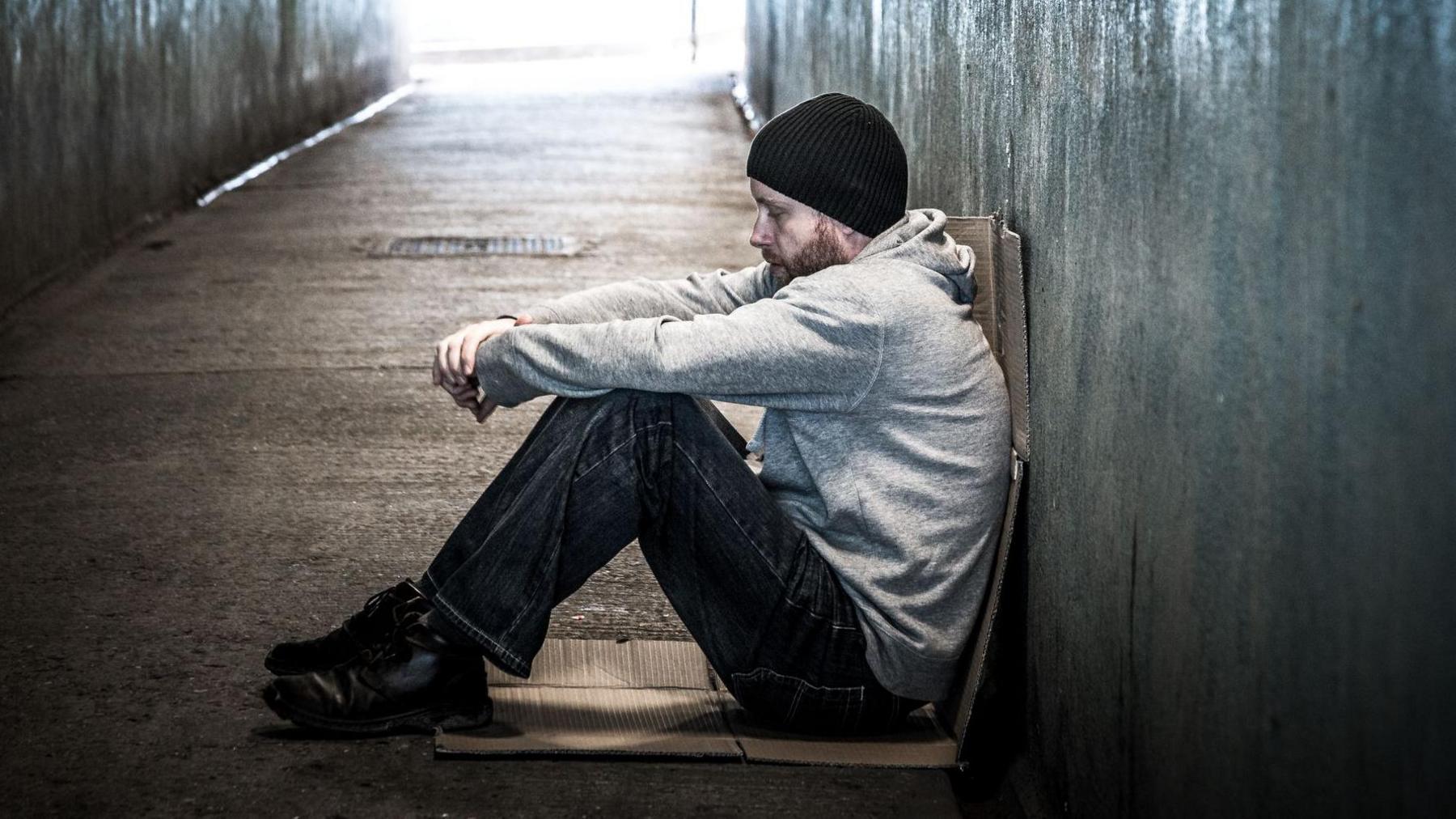Alcohol-related homeless deaths highest on record

- Published
New figures suggest 244 people died while experiencing homelessness in Scotland last year.
The National Records of Scotland (NRS), external statistics show that deaths among people who were homeless declined slightly from 2021.
However, alcohol-specific deaths among the same group were their highest on record at 32, up from 17 in 2021.
Scottish government housing minister Paul McLennan said: "Scotland has the strongest rights in the UK for people experiencing homelessness, but we are committed to ensuring that no-one need become homeless in the first place."
Drug misuse deaths among people experiencing homelessness fell to their lowest level since 2017 but still represent 36% of the overall total.
The Office for National Statistics is yet to release figures for homeless deaths in England and Wales for last year.
However, a report released in November 2022, external said that England and Wales figures should not be compared to Scotland figures.
More than half of homeless deaths are drug-related
- Published30 November 2021
Child homelessness in Scotland at new record high
- Published29 August 2023
Fifth of foreign students face homelessness - report
- Published24 April 2023
The NRS estimated that as many as 259 people could have died while homeless in Scotland having considered deaths it possibly missed in compiling the stats.
The 2022 Scottish statistics found that:
There were an estimated 244 deaths of people experiencing homelessness
registered in Scotland in 2022.
Homeless deaths are at a higher level now compared to 2017, when these statistics were first collected.
73% of homeless deaths were male and 27% were female
Almost half (49%) of homeless deaths were people aged under 45
Drug-misuse deaths of people experiencing homelessness fell in the past year from 127 to 89.
Probable suicide deaths declined to 19, back to 2017 levels.
City of Edinburgh had the highest rates of homelessness deaths per million population in 2022.
The NRS said the 244 figure was estimated as only 216 people experiencing homelessness were identified to have died in 2022.
The statisticians said they used the same methodology every year as "identifying whether a person was homeless when they died is not straightforward using the information recorded at death registration".
The figure considers place of residence, place of death, hospital deaths, registrar notes and institution codes that determine whether a person died while at a homeless shelter.
'Crisis point'
Matt Downie, chief executive of Crisis, a charity dedicated to ending homelessness, called the figures a national disgrace.
"We are seeing more people forced to sleep on the street, more families trapped for long periods in accommodation that’s totally unsuitable, and more people being told there is simply nowhere for them to go," Mr Downie said.
"We urgently need the Scottish government to press on with plans to prevent homelessness from happening in the first place.
"New duties to prevent homelessness, if properly resourced, could allow people to get help before they reach crisis point, to help them avoid being forced from their homes," he said.
'Stubbornly high'
Scottish Conservative social security, housing and equalities spokesman Miles Briggs said: "Every one of these deaths is a tragedy, and the numbers remain stubbornly high.
“It is appalling that this many people should be dying on Scotland’s streets without the government taking urgent action.
"After a decade and a half in power, the SNP need to accept responsibility for the housing emergency created under their watch, and take immediate steps to stop this disgraceful toll of avoidable deaths."
Scottish government Housing Minister Paul McLennan said: "Every single one of these deaths is one too many and I extend my sincerest condolences to all those affected.
"We are providing local authorities with £30.5m annually for their work to prevent homelessness. Separately, we are providing a total of £100m from our multi-year Ending Homelessness Together fund.
"We are making available £3.5bn over this parliamentary term to support the delivery of 110,000 affordable homes by 2032, 70% of which will be for social rent," he said.
Mr McLennan said that the Scottish government continues to work with local authorities to identify housing pressures in specific regions.
